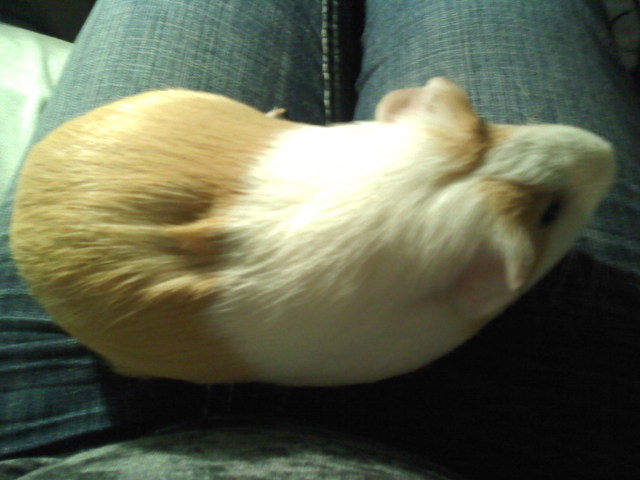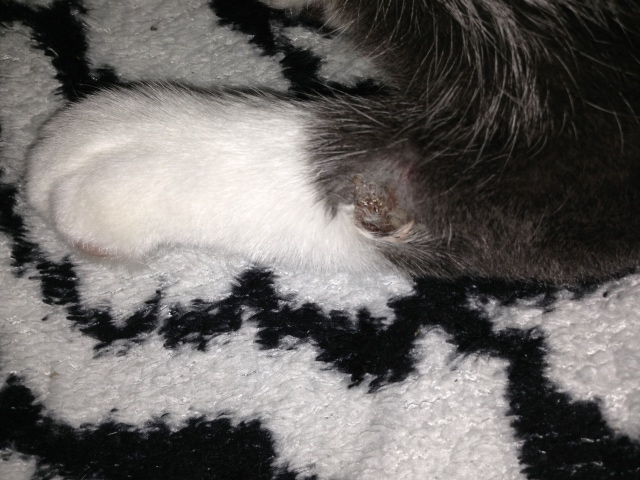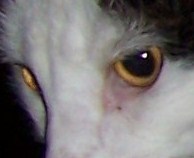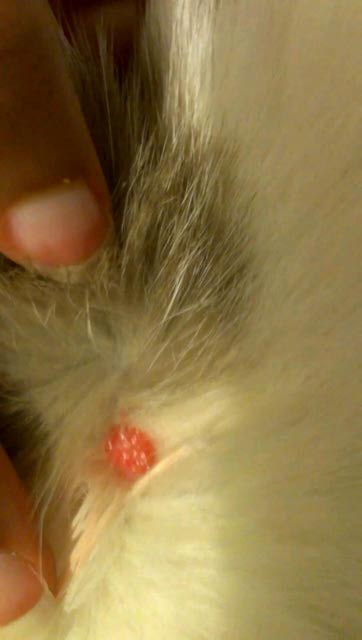QuestionSir I purchased a black female Labrador (American) puppy with the intention of breeding her. She was born 11-11-2011 and we brought her home 6 weeks later. We met the mother at the breeders and she was a yellow Lab. About 3 weeks after we brought 'McKinley' home we found she had some small bare patches on her skin. We took her to my vet and she was diagnosed with Demodex. She was treated with 5 dips and the final scrapings showed negative. Now at 7 months she is a healthy happy active puppy without any residual effects of the mites or the treatment.
I contacted the breeder when we found out 'McKinley' had the mites and she stated that the mother had been breed several times and none of her litters had mites before. I also contacted the breeders Vet and he confirmed none of the breeders animals had been treated or found to have Demodex.
I purchased this puppy to be breed but was advised by my vet that she should never have any puppies of her own.
I would like to breed my dog but do not want to propagate this disease or place my "McKInley' or her babies in danger.
Is it possible to do preventive treatments prior to her going into heat and mating to stop the mites from migrating to the puppies? We keep her as stress free as possible and she is fed the best food for her breed. Other than the episode of Demodex she is a very healthy puppy!
We have grown very attached to 'McKInley' and would not part with her but we do want to have a litter of her puppies. Am I wishing for to much? I than you for your reply.
AnswerDemodex mites cause disease because of a weakened immune system. That immune problem can be genetically propagated in certain strains of breeds. The problem is that we do not know all of the dogs that have this genetic problem and there is no way to test for it. So we recommend that if a female has had demodex mange that she not be bred so that there will not be the chance of introducing this genetic material into more puppies.

 Guinea Pigs... what could be wrong
Question
G.PIG
my G.Pig has been scratching his back an
Guinea Pigs... what could be wrong
Question
G.PIG
my G.Pig has been scratching his back an
 I think my cat may have got bit by a Brown Recluse Spider
Question
Right leg bite mark Again
I am ve
I think my cat may have got bit by a Brown Recluse Spider
Question
Right leg bite mark Again
I am ve
 Cat with yellow eyes
Question
eyes
A friendly white female cat has recently
Cat with yellow eyes
Question
eyes
A friendly white female cat has recently
 Red sore on my cat
Question
Cat Sore
Hi. I recently noticed a
Red sore on my cat
Question
Cat Sore
Hi. I recently noticed a
 black spot on cats nose
Question
cat nose
Should I be concerned about the black
black spot on cats nose
Question
cat nose
Should I be concerned about the black